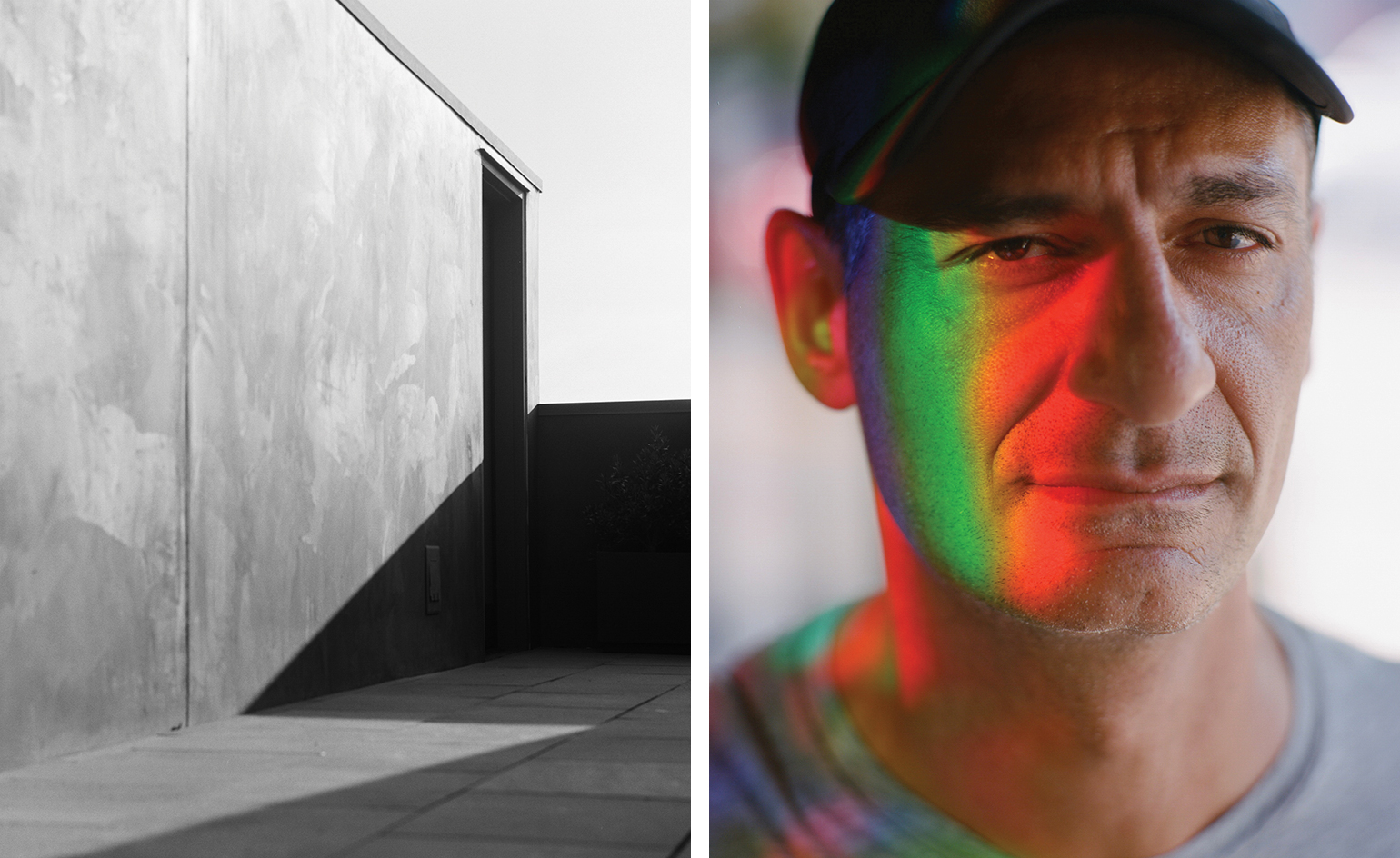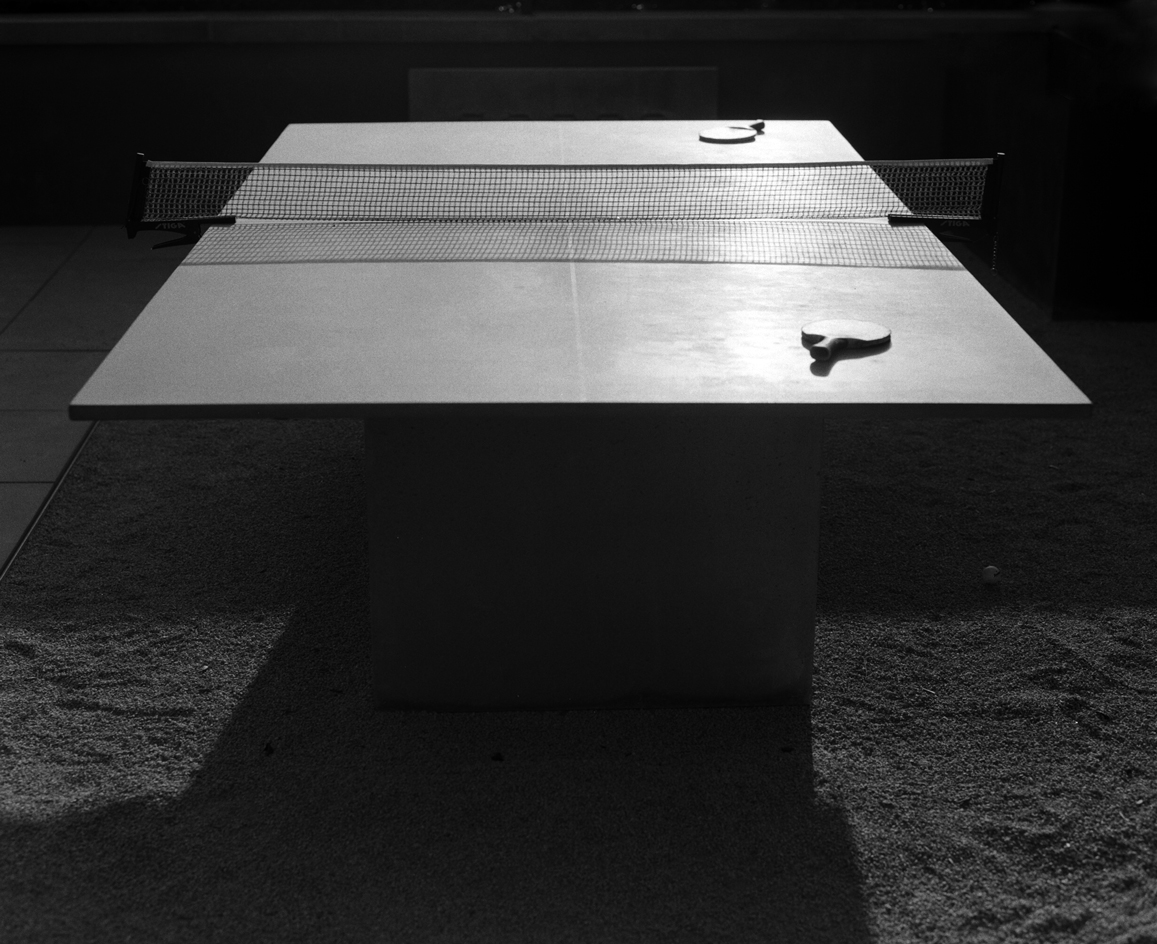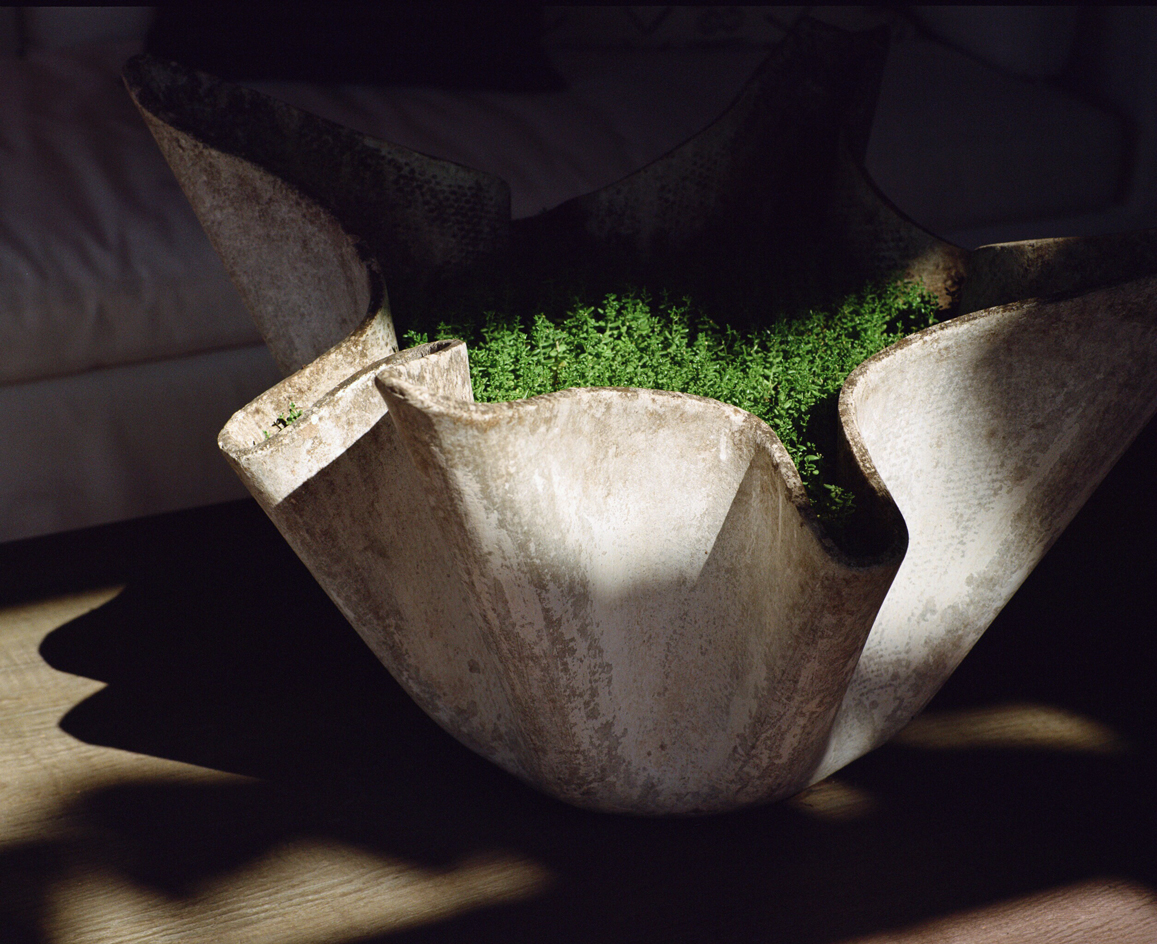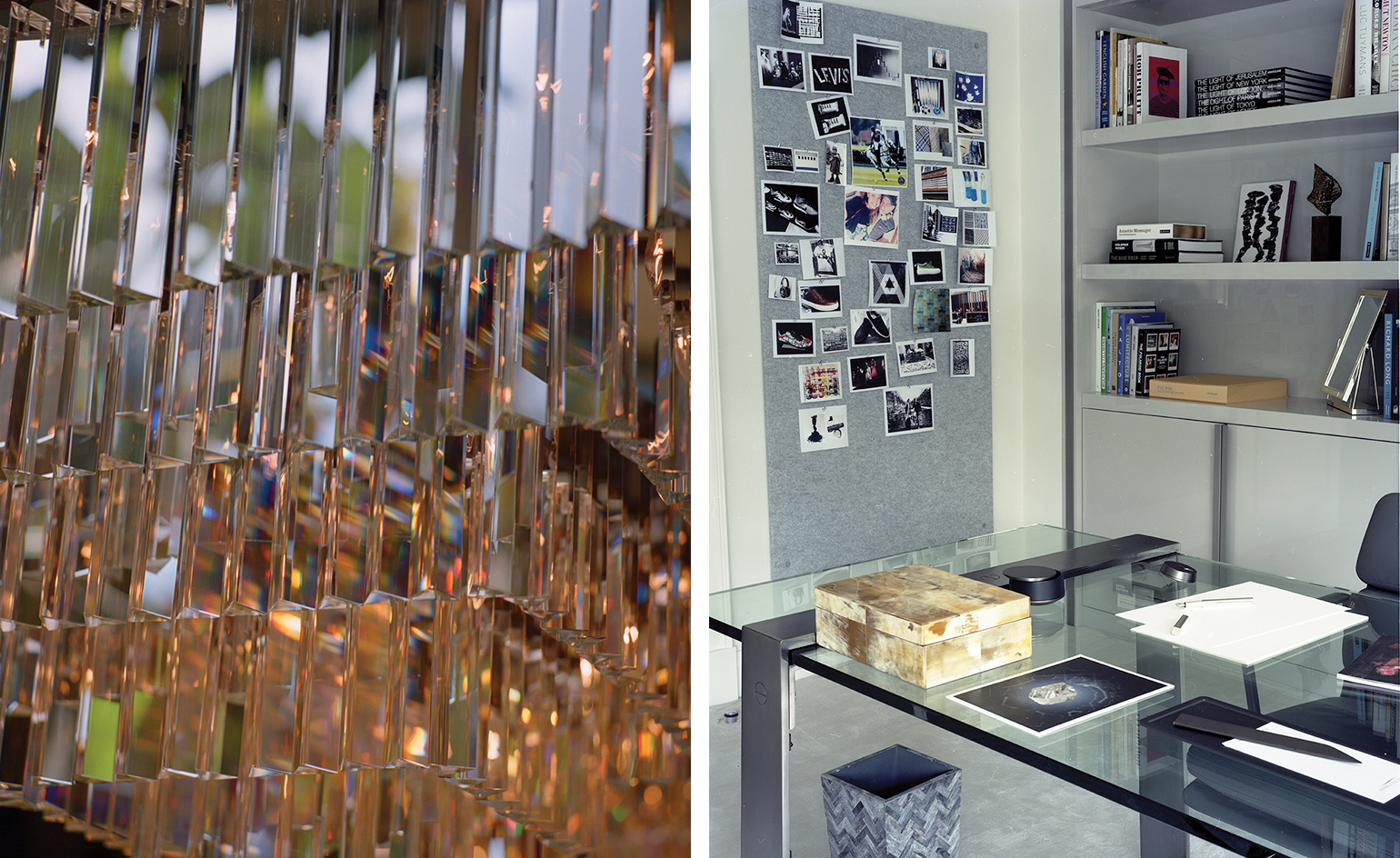Melrose Place maker: Ben Soleimani on reinventing a tired patch of West Hollywood

Receive our daily digest of inspiration, escapism and design stories from around the world direct to your inbox.
You are now subscribed
Your newsletter sign-up was successful
Want to add more newsletters?

Daily (Mon-Sun)
Daily Digest
Sign up for global news and reviews, a Wallpaper* take on architecture, design, art & culture, fashion & beauty, travel, tech, watches & jewellery and more.

Monthly, coming soon
The Rundown
A design-minded take on the world of style from Wallpaper* fashion features editor Jack Moss, from global runway shows to insider news and emerging trends.

Monthly, coming soon
The Design File
A closer look at the people and places shaping design, from inspiring interiors to exceptional products, in an expert edit by Wallpaper* global design director Hugo Macdonald.
Back from Melrose Avenue and rising up like a Mediterranean villa on steroids, Restoration Hardware’s vast Los Angeles gallery possesses the ambition of a Hollywood tentpole production. Unveiled in 2014, the store features a grand double staircase leading to a 929 sq m public rooftop park complete with an olive grove, towering hedges, water fountains and fire pits.
Restoration Hardware’s California flagship anchors what’s becoming known as Melrose High Street, a six-block tract extending from the César Pelli-designed Pacific Design Center to La Cienega Boulevard. The man behind the strip’s radical revitalisation is Ben Soleimani, the scion of a vaunted Iranian family that has dealt in museum-quality carpets and tapestries for four generations.
‘Not that long ago, this area was extremely sparse and not the kind of place where you’d wish to spend much time,’ says Soleimani from the lush rooftop aerie, which he conceived in conjunction with Restoration Hardware’s CEO Gary Friedman. ‘People thought we were insane building such a huge store in this location, but it’s proven to be a tremendous success. Gary Friedman shares my vision for innovation; we met and were immediately finishing each other’s sentences.’
Born in pre-revolution Iran, Soleimani moved to Los Angeles from London in 1988. ‘After the cold, dark school days in England, I craved the sunshine and California’s sense of ease,’ he says. Soon after, the ambitious teenager convinced his father to buy land on Melrose Avenue, then a rough-and-tumble patchwork of record stores, used-clothing emporiums and tattoo parlours. In 1993, he opened Mansour, the first North Americanoutpost of the family’s venerable rug dealership, known in the UK as the official purveyor of rugs to the royal family. The venture was a huge success, drawing other rug merchants and design firms to Melrose Avenue. ‘At that time, nobody knew Mansour in America, but we made it the most popular place in the country for vintage rugs,’ he says.
Los Angeles was a very different city back then. It was a year after the LA riots and the city’s long-promised cultural renaissance was yet to coalesce. ‘LA has come a long way in the last 15 years; it’s now considered a genuine global capital, a place that is setting trends and influencing people,’ says Soleimani. ‘But when I first arrived, if you wanted to buy anything you’d have to go to Rodeo Drive, which was too flashy and felt irrelevant to a person in their twenties or thirties.’
Soleimani envisioned the kind of retail destination that combined the city’s relaxed sophistication with a European sensibility, and began quietly buying up neighbouring properties along Melrose. ‘I could see the potential to create something like Mount Street in Mayfair – an intimate destination that was stylish but with an independent, contemporary spin,’ he explains. Today, Soleimani estimates he owns around 80 per cent of the land along Melrose High Street.
Soleimani’s prescient acquisitions foreshadowed Los Angeles’ wider metamorphosis. In recent years, the city has achieved a status as a global tastemaker. Its artistic bona fides have been burnished with the recent openings of the Broad Museum and downtown’s Hauser Wirth & Schimmel, considered the largest private art gallery in America. Fashion is also gaining traction after resident designers Hedi Slimane and Tom Ford have shown high-profile collections here. Global luxury brands are flocking and the city is increasingly siphoning design talent from New York and other capitals. A 2015 New York Times article tracked the city’s nascent status as a style capital in an article titled ‘Los Angeles is Becoming Paris Amid the Palms’.
‘Melrose is going to be the benchmark for high-end retail in LA in the next 20 years,’ Soleimani predicts, emphasising that he hasn’t set out to replicate the experience of shopping in London or Paris. ‘A sense of place is very important to me and this is still classic California. I’m not a typical property developer as I’m guided by my interests and taste more than the bottom line. My nature is to shake things up and make them my own.’
Soleimani’s masterplan, which he estimates is about 85 per cent complete, will be fully realised in around 18 months. It includes a West Coast outpost of gourmet temple Dean & DeLuca, complete with an outdoor courtyard cafe; athleisure stores such as Sweaty Betty and Lululemon; a curated selection of international fashion labels and design stores; and new restaurants, salons and art galleries. ‘I’m very hands-on about looking for freshpartners and brands. I’m making it more fashionable and artsy without attracting the same luxury brands you find everywhere. It’s a place for sophisticated people who don’t need to show off,’ he says.
Perhaps second to Abbot Kinney Boulevard, Venice Beach’s rapidly gentrifying retail artery, Melrose High Street is also poised to become one of the most pedestrian-friendly corridors in all of car crazy Los Angeles. And, despite some resistance from locals concerned about the huge footprint of Restoration Hardware, which was built from the ground up, Soleimani’s plans have been popular with the community. ‘Ben Soleimani had a vision on the end of Melrose that was compatible with the City’s desire to make that area a strong economic engine for our community,’ says West Hollywood councilman John Duran. ‘It took a lot of hard work with the City, the neighbourhood and surrounding businesses – but in the end, we have a design district in West Hollywood that is the envy of surrounding communities. Much of that is attributable to Ben’s tenacity, vision and hard work.’
Soleimani is bringing the same energy and sense of reinvention to the rug industry with the growth of his eponymous line, a collaboration with Restoration Hardware. ‘We are revolutionising the way people are buying rugs today,’ he says. ‘Over the years, I’ve found that the traditional gallery model can be intimidating and overpriced; with the Ben Soleimani RH collection, we set out to create contemporary but exceptionally made pieces that feel compatible with the way people live today.’
Soleimani designs each rug within the expansive collection himself, working with artisans and craftspeople all over the world. ‘I like to emphasise the natural and the handmade with my collection,’ he says, pointing out contemporised versions of ancient patterns, as well as innovative new techniques, which involve hand-dyeing and spinning to create a textural, patinated effect. Whether he’s talking about his incredibly popular collection of rugs, his vision for Melrose High Street (a thriving ‘village within a city’) or a recent weekend playing polo in Santa Barbara, Soleimani is clearly a man guided by his instincts and driven by a genuine lust for life. ‘It doesn’t matter if I’m designing a rug or finding an architect to create one of the new stores, the common denominator is I like to be creative and make a difference,’ he says. ‘I have a desire to move things forward and create change in the world – otherwise why even bother?’
As originally featured in the October 2016 issue of Wallpaper* (W*211)

Ben Solemani had a vision on the end of Melrose that was compatible with the City's desire to make that area a strong economic engine for our community', says West Hollywood councilman John Duran.

Solemani is not 'a typical property developer' as he is guided by his taste more than 'the bottom line'.

Pictured right: Soleimani's mood board and RH modern desk at his home workspace in London. Round black bronze desk case, CHF1,200 (€1,101); bronze sharpener, CHF620 (€569); sterling silver '925' fountain pen, CHF2,400 (€2,202); A4 letterhead in white cream, CHF125 (€138); bronze letter opener, CHF1,600 (€1,468); bronze short tray, CHF1,600 (€1,468); bronze short tray, CHF1,200 (€1,101), all by Hieronymous.
Receive our daily digest of inspiration, escapism and design stories from around the world direct to your inbox.